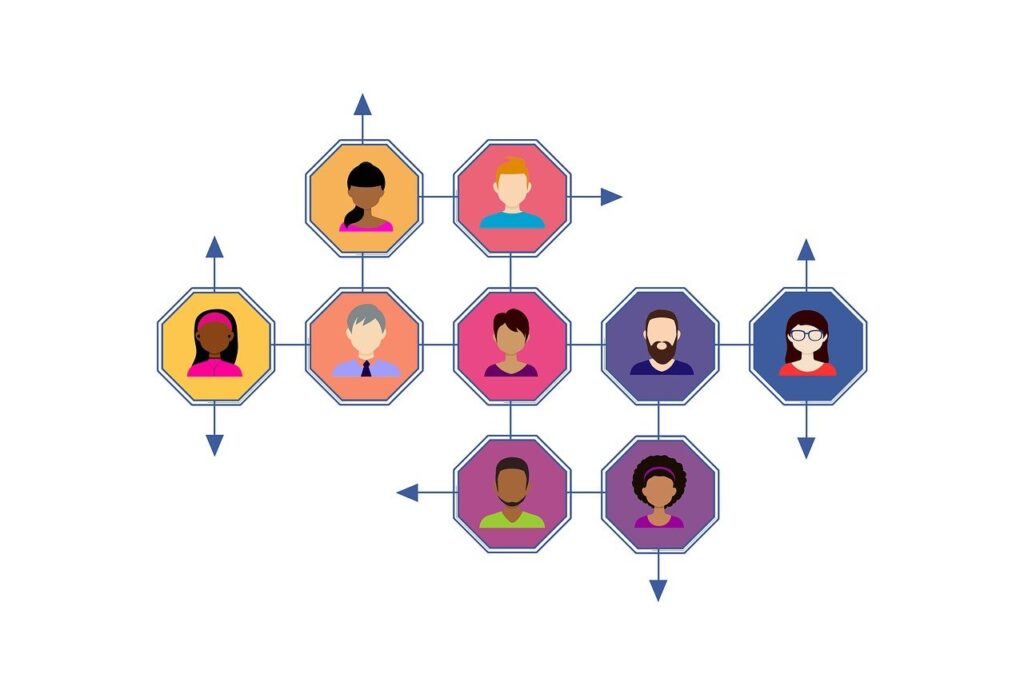Marketing information management strategies designed to align team insights and perspectives can improve communication and encourage collaboration, increasing effectiveness and fostering success in business environments.
Marketing information management also reduces the risk of data breaches, an important aspect considering that data compliance violations cost businesses much more than financial losses.
An effective marketing information management strategy includes plans for storage and reporting as well as tracking items such as click-through rates for advertisements.
Internal Data
Internal data is an indispensable element of marketing information management strategies, from sales figures and customer satisfaction surveys to product performance reports and company-specific performance measurements. By collecting and compiling this data in an MIS system, businesses can create reports with pinpoint insights useful to the entire organization.
Marketing teams may employ attribution models to gain an accurate picture of how customers are engaging with their products, providing valuable data that allows them to plan more effective digital and social media campaigns that generate leads. Customer service teams may use similar data for improved interactions with existing customers as well as connecting more readily with prospective ones.
Marketing information management can also assist companies in staying compliant with industry regulations, including those concerning data collection and sharing. When data is centralized, it becomes much easier to ensure employees adhere to stringent security guidelines to protect customer and prospect data.
Marketing Information Systems
Many MIS software packages enable users to set up automated workflows that keep information updated and accessible. Reports generated from this software allow for rapid identification of any discrepancies or errors and correction quickly; this can prevent data from becoming outdated and inaccurate and disrupt business decision-making processes.
Marketing information systems provide companies with numerous time and resource savings by eliminating the need to manually collect and compile data across departments. By consolidating all this data into one system, all this information can more easily be shared among departments – for instance, a marketing team might use this data to develop reports that give sales or customer service teams insights they need to generate new leads or convert prospects into sales opportunities.
An MIS can not only facilitate accessing marketing data for different departments, but it can also generate reports that are simple and easy for employees who do not work directly with it daily to understand. Marketing reports such as brand awareness or return on investment reports can be created that provide useful data that is easy for all employees in any department to digest; such reports are especially beneficial when working with new staff who might not understand marketing terminology.
Third-Party Data
Marketers collect various kinds of data through marketing programs, from first-party data collected directly by brands to partner or purchased information which becomes second and third-party data, plus “zero-party” (declared data provided voluntarily by customers such as their communications preferences in response to surveys).
Customer Data Platforms (CDPs) serve as a central repository for all this data, housing both first- and third-party records in one convenient place. Your team can manage these platforms so all departments have easy access to the information needed for making better decisions.
Marketing programs your company runs with partners can also yield second-party data that are extremely relevant, such as web cookie tracking on digital properties like websites and mobile apps. It can provide insight into product purchases, newsletter subscriptions, social media interactions, and customer support calls as well as support calls relating to customer success calls – but the most useful data comes from research methods such as focus groups or interview responses.
Third-party data can be purchased from third-party providers and typically has much broader coverage than the first two forms of data. Aggregators take data sets from multiple sources and organize them for sale to businesses, while government agencies or nonprofit organizations might also source them.
Many brands rely on third-party data to round out their understanding of their audience’s behavior, providing a complete view. Third-party data allows businesses to see who the target market is and what their needs are, giving them the ability to target specific ad campaigns more effectively.
The Marketing teams can gain information from third-party systems depending on the report they’re running. For instance, competitive intelligence reports show what products and services your competitors offer that could inform planning their marketing strategy.
Marketing Intelligence Reports
Marketing teams that lack access to organized and clear data risk making ill-informed decisions that lead to overspending or missed opportunities. By investing in a marketing information management system designed to centralize all relevant data and reporting, companies can ensure clarity for decision-making processes by arming themselves with facts for every decision they need to make.
Marketing information management not only allows businesses to easily analyze the effectiveness of their current marketing strategy but is also an effective means for identifying emerging trends and opportunities within their industry. By keeping tabs on global, national, and local market trends businesses can stay ahead of the competition by making informed decisions that keep them profitable.
Marketing Information Management Systems provide reports and insights for all departments within an organization, from sales to public relations to customer service. All departments can use data-driven insights to optimize their products and services for greater customer engagement, thus creating an easily identifiable brand across the organization.
Integrating all your marketing research into one system allows you to easily generate tailored reports, accessible across the organization with just one click. This saves both time and effort for departments seeking data-driven decisions.
Once your company begins the implementation of a marketing information management system, take your time testing everything and double-checking reports before releasing them to clients.
The management of all your marketing data may seem like a difficult feat. But with proper strategies in place and tools and systems in place, you can streamline this process. You can use it to your advantage to create an invaluable asset for your entire company.
Additional Marketing Research
Businesses require as much information as possible to create the optimal marketing strategy. But all that information can quickly become overwhelming without an organizational system in place. Marketing information management involves collecting, organizing, storing, and analyzing valuable marketing research data such as sales reports, campaign results reports, marketing software analytics reports, or competitor analyses. This process helps streamline business operations while improving marketing efficiency. This also helps by giving companies an edge by giving insights into target audiences and market trends.
Marketing information management is a multi-step process. It includes setting clear goals, collecting diverse data sources, analyzing them for actionable insights, and effectively communicating those findings to relevant departments. Establishing an effective marketing information management system takes time and effort. But once implemented successfully it will provide every department with access to all the data they require to make informed decisions and meet marketing goals.
Effective Marketing Information Management Team
An effective marketing information management team can also prove advantageous for businesses. It also allows them to focus their attention solely on this process and ensure its smooth running. A top-quality system should include data validation as a vital step for accurate and valid data points. This helps prevent human error from altering information or derailing marketing strategy strategies.
Data about customer behaviors and preferences allows marketers to develop targeted digital ad campaigns. It helps in increasing customer engagement while driving sales growth. Meanwhile, predictive analytics help companies optimize their marketing budgets by identifying cost-effective methods.
Many teams can benefit from marketing information management, including sales, customer service, product teams, and executives. By giving these teams easy access to marketing data. They can use it to gain a deeper understanding of their audience and develop more targeted campaigns. Furthermore, data on market trends and competitor activity can assist marketers. Marketers can decide how their marketing dollars should be spent most effectively.











